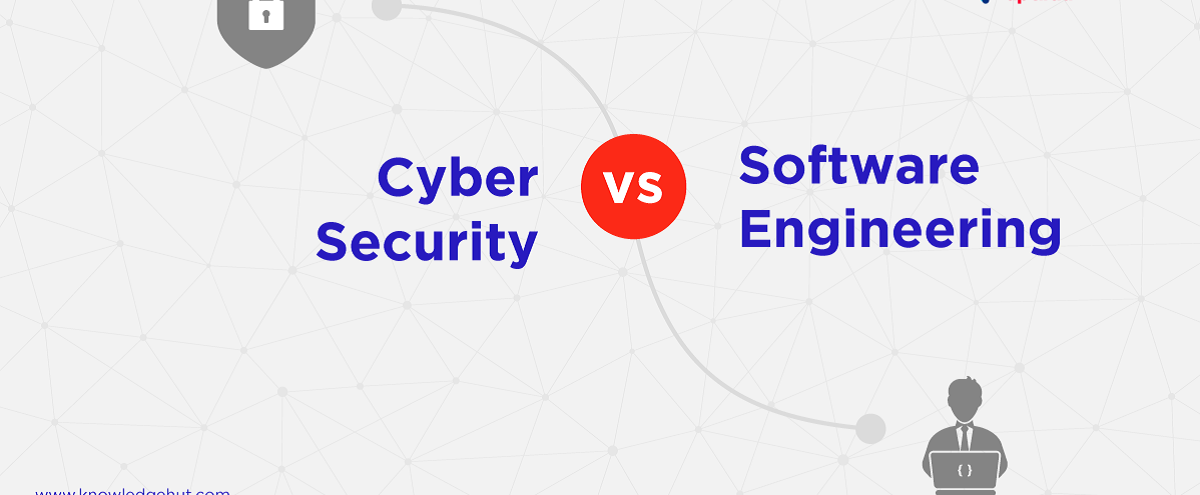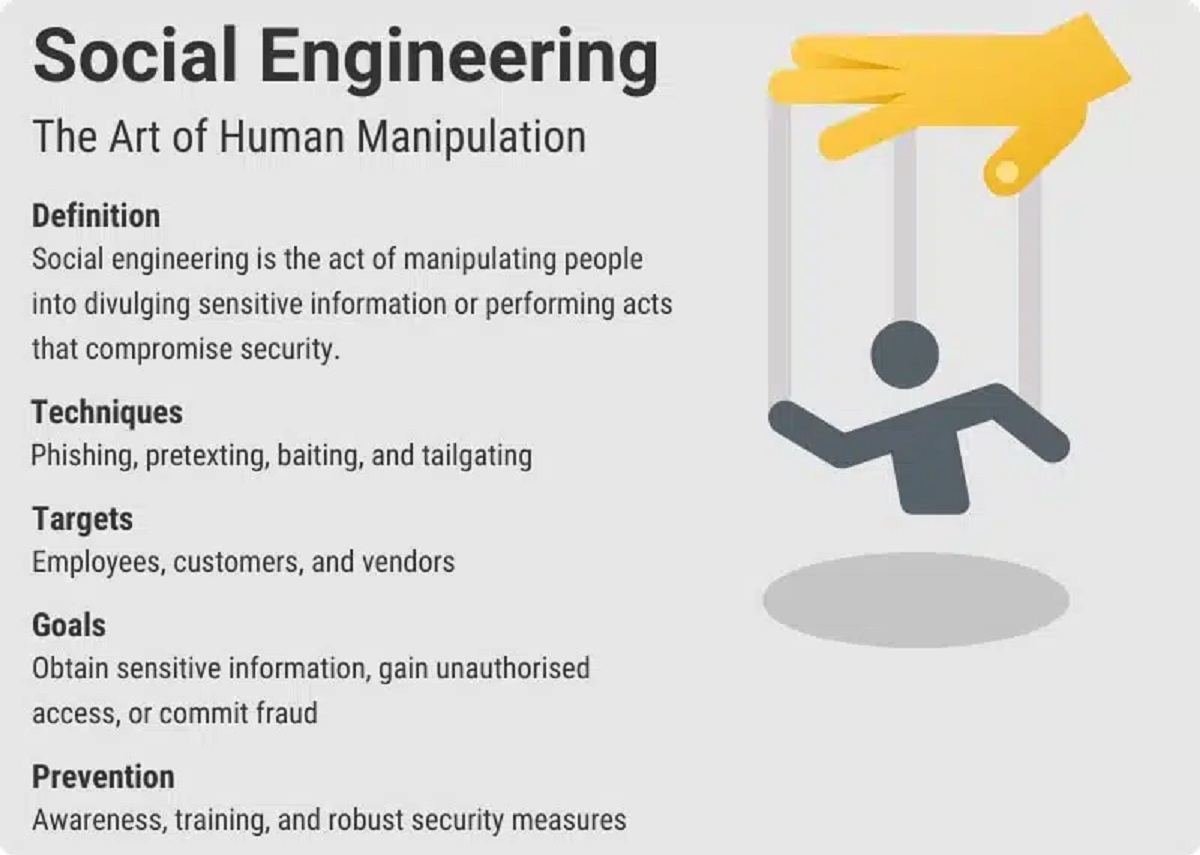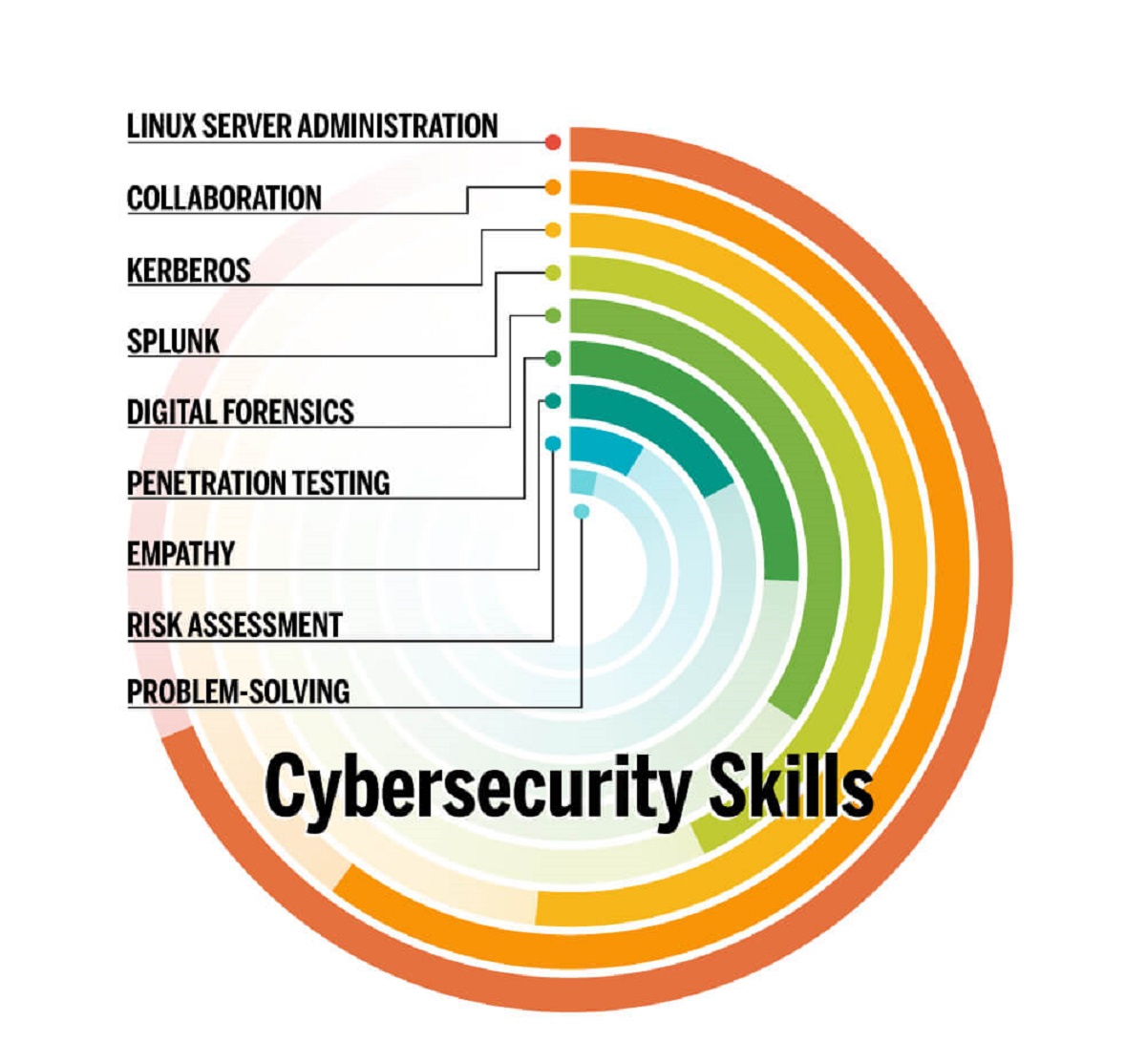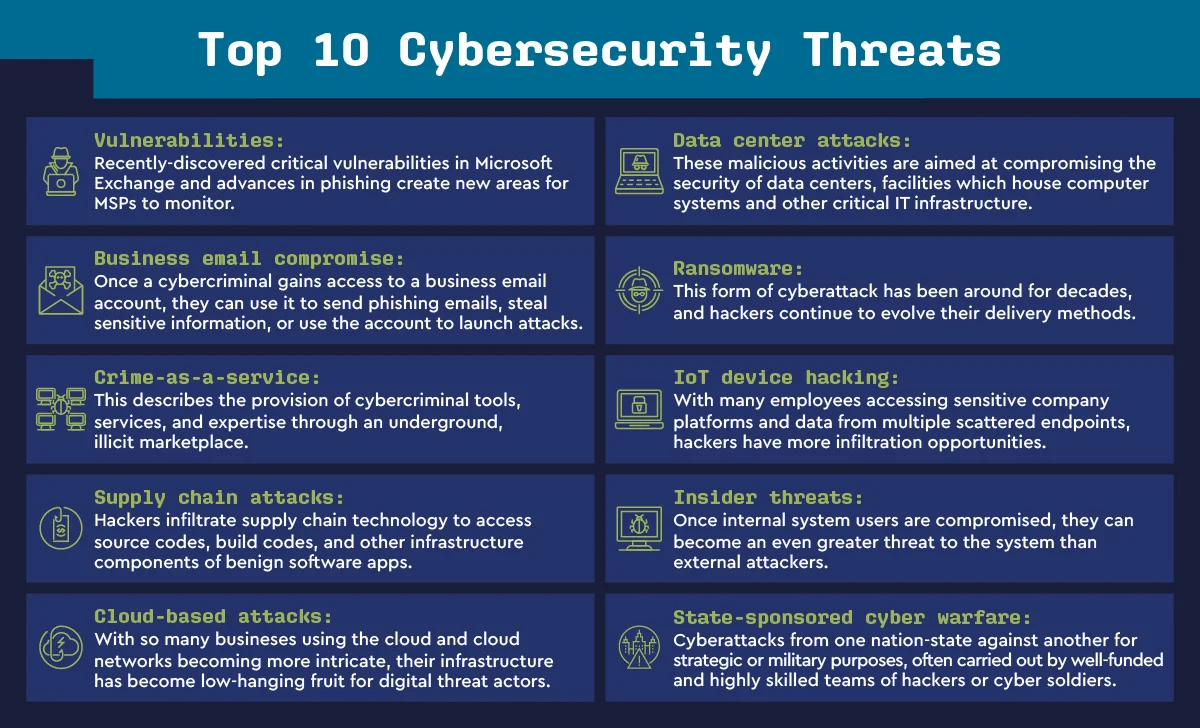Introduction
As technology continues to advance and play a significant role in our lives, the demand for skilled professionals in various IT fields is on the rise. Two thriving areas garnering attention are software engineering and cybersecurity. Both fields offer promising career opportunities and require a strong foundation in the world of computing.
Software engineering revolves around the development, maintenance, and testing of software systems. This discipline focuses on designing efficient and practical solutions to fulfill specific user needs. On the other hand, cybersecurity is dedicated to protecting computer systems, networks, and data from unauthorized access, malicious attacks, and other potential threats.
Understanding the differences and similarities between these two fields is essential for individuals considering a career in the IT industry. In this article, we’ll delve into the intricacies of software engineering and cybersecurity, exploring their skill requirements, job markets, salary comparisons, and career growth prospects. By gaining a deeper understanding of these fields, you’ll be better equipped to make an informed decision about which path to pursue.
What is Software Engineering?
Software engineering is a discipline that focuses on the design, development, testing, and maintenance of software systems and applications. It involves applying engineering principles and practices to create reliable, efficient, and user-friendly software solutions.
Software engineering encompasses a wide range of activities, including requirements analysis, system design, coding, debugging, and software deployment. It involves working with programming languages, frameworks, and tools to build robust software that meets user needs and business requirements.
A software engineer is responsible for understanding end-user requirements and translating them into technical specifications. They work closely with stakeholders, such as project managers, designers, and quality assurance teams, to ensure that the software meets the desired functionality and performance standards.
Software engineering follows a systematic and structured approach to software development. It involves breaking down the development process into smaller tasks, known as software development life cycle (SDLC) phases. Common SDLC phases include requirements gathering, design, implementation, testing, and maintenance.
Effective communication and collaboration skills are crucial in the field of software engineering. Software engineers often work in cross-functional teams and need to effectively communicate technical concepts to non-technical stakeholders. They are also responsible for documenting their code and providing clear instructions for others to understand and maintain the software.
Continuous learning is an integral part of software engineering. As technology advances, software engineers need to stay updated with the latest tools, frameworks, and coding practices. They need to adapt and learn new technologies to build innovative software solutions and address evolving user needs.
In summary, software engineering is a multidisciplinary field that combines engineering principles and programming skills to create high-quality software systems. It requires a strong understanding of programming languages, problem-solving abilities, effective communication skills, and a passion for continuous learning and improvement.
What is Cybersecurity?
Cybersecurity is the practice of protecting computer systems, networks, and data from unauthorized access, damage, and other cyber threats. In today’s digital age, where technology plays a critical role in our personal and professional lives, cybersecurity has become an increasingly important field.
Cybersecurity professionals analyze and identify potential vulnerabilities in computer systems and networks, develop strategies to mitigate risks, and implement measures to safeguard against unauthorized access or data breaches. This involves implementing security protocols, encryption techniques, and monitoring tools to ensure the integrity and confidentiality of sensitive information.
One of the primary objectives of cybersecurity is to prevent unauthorized access or hacking attempts. Cybersecurity professionals employ various techniques, such as network firewalls, intrusion detection systems, and access control mechanisms, to restrict access to confidential data and maintain the security of digital assets.
Another key aspect of cybersecurity is incident response and management. In case of a security breach or cyber attack, cybersecurity professionals must have the skills to identify, analyze, and respond to the incident effectively. This includes assessing the damage, containing the threat, restoring systems to normal operations, and conducting post-incident analysis to prevent future occurrences.
Additionally, cybersecurity professionals play a crucial role in educating users and promoting safe online practices. They develop and implement security awareness programs, conduct training sessions, and disseminate information on potential threats. This helps individuals and organizations understand the importance of cybersecurity and take necessary precautions to protect themselves from cyber threats.
Continuous learning is essential in the field of cybersecurity, as attackers constantly develop new techniques and methods. Cybersecurity professionals need to stay updated with the latest trends, industry standards, and emerging technologies to effectively counteract evolving threats.
In summary, cybersecurity is an ever-evolving field that focuses on protecting computer systems, networks, and data from cyber threats. It involves implementing security measures, incident response planning, and promoting a culture of security awareness. Strong analytical skills, technical expertise, continuous learning, and a deep understanding of potential threats are critical for success in the cybersecurity field.
Comparison Between Software Engineering and Cybersecurity
While software engineering and cybersecurity are both in-demand fields within the IT industry, they differ in their focus and skill requirements. Understanding the distinctions between these two areas can help individuals make an informed decision about which path to pursue. Let’s explore the key differences and similarities between software engineering and cybersecurity.
Focus: Software engineering primarily focuses on the development, maintenance, and testing of software systems. It involves designing and creating software solutions that meet user needs and business requirements. Cybersecurity, on the other hand, is focused on protecting computer systems, networks, and data from unauthorized access and potential threats. It involves implementing security measures, analyzing vulnerabilities, and mitigating risks.
Skills: Software engineers require strong programming skills, knowledge of software development methodologies, and proficiency in programming languages and frameworks. They should have expertise in areas such as algorithms, data structures, and software architecture. Cybersecurity professionals need skills in areas such as network security, ethical hacking, vulnerability assessment, and incident response. They should have a deep understanding of operating systems, cryptography, and security protocols.
Collaboration: Both software engineers and cybersecurity professionals often work in collaborative environments. However, software engineers typically collaborate with cross-functional teams that include designers, project managers, and quality assurance professionals. They need to effectively communicate technical concepts to non-technical stakeholders. In contrast, cybersecurity professionals often collaborate with IT teams, system administrators, and executives to implement and manage security measures.
Job Market: The job market for both software engineering and cybersecurity is strong and shows no signs of slowing down. However, the demand for cybersecurity professionals is growing at a faster rate due to the increasing frequency and complexity of cyber threats. Organizations across sectors recognize the need for robust cybersecurity practices and are actively seeking professionals with expertise in this area.
Career Growth: Both software engineering and cybersecurity offer excellent career growth opportunities. Software engineers can pursue roles such as software architect, technical lead, or project manager. They can also specialize in specific domains or technologies, depending on their interests. In cybersecurity, professionals can progress from entry-level roles to positions such as security analyst, security engineer, or chief information security officer (CISO). The continuous development of new technologies and the increasing need for cybersecurity make it a promising field for long-term career growth.
In summary, while software engineering and cybersecurity differ in their primary focus and skill requirements, both are essential areas within the IT industry. It’s important to assess your interests, strengths, and career goals to determine which field aligns best with your aspirations. Whether you choose to pursue software engineering or cybersecurity, both paths offer promising career prospects and the chance to make a significant impact in the ever-evolving world of technology.
Skills Required for Software Engineering
Software engineering is a dynamic field that requires a diverse and wide range of skills. The following are some of the essential skills needed for success in software engineering:
- Programming Languages: Software engineers should be proficient in one or more programming languages such as Java, Python, C++, or JavaScript. They should have a deep understanding of programming concepts, syntax, and best practices.
- Problem-Solving Abilities: Software engineers need strong problem-solving skills to analyze complex issues, identify effective solutions, and debug code. They should be able to think logically and approach problems in a systematic and structured manner.
- Software Development Methodologies: Understanding various software development methodologies, such as Agile or Scrum, is crucial. Software engineers should be familiar with iterative development, version control systems, and collaborative tools used in the software development process.
- Data Structures and Algorithms: Proficiency in data structures and algorithms is essential for efficient software development. Software engineers should have a solid understanding of data organization and manipulation techniques to optimize performance and memory utilization.
- Software Architecture and Design Patterns: Knowledge of software architectural principles and design patterns helps in creating scalable, maintainable, and robust software systems. Familiarity with concepts like MVC (Model-View-Controller) or SOLID principles can contribute to the development of high-quality software.
- Interpersonal and Communication Skills: Effective communication and collaboration are essential in software engineering. Software engineers need to interact with team members, stakeholders, and clients, so good verbal and written communication skills are crucial for conveying technical concepts and requirements.
- Testing and Debugging: Software engineers should have experience in testing methodologies and tools to ensure the quality and reliability of software applications. They should be able to identify and fix bugs, perform unit testing, and conduct system testing to verify functionality and performance.
- Continuous Learning: The field of software engineering is rapidly evolving, so continuous learning is crucial. Staying updated with the latest technologies, frameworks, and best practices allows software engineers to adapt to new trends and deliver innovative solutions.
These skills, combined with a passion for problem-solving and a strong attention to detail, are essential for a successful career in software engineering. Continuously honing these skills through practice, self-learning, and professional development opportunities will help software engineers excel in their roles and contribute to the development of cutting-edge software solutions.
Skills Required for Cybersecurity
Cybersecurity is a rapidly growing field that entails a diverse range of skills to effectively protect computer systems, networks, and data from cyber threats. The following are some of the crucial skills needed for success in cybersecurity:
- Network Security: Understanding network protocols, firewalls, and intrusion detection and prevention systems is essential for safeguarding networks. Cybersecurity professionals should have knowledge of network security principles and be able to implement security measures to detect and prevent unauthorized access.
- Ethical Hacking: Proficiency in ethical hacking techniques is crucial for accurately assessing system vulnerabilities. Cybersecurity professionals should understand penetration testing, vulnerability scanning, and other techniques to identify potential weaknesses and develop effective mitigation strategies.
- Cryptography: Knowledge of encryption algorithms, cryptographic protocols, and key management is essential for protecting data from unauthorized access. Cybersecurity professionals should understand encryption techniques to secure sensitive information and ensure data confidentiality and integrity.
- Risk Assessment and Mitigation: Assessing and mitigating risks is fundamental in cybersecurity. Professionals should be able to conduct risk assessments, identify potential threats and vulnerabilities, and develop strategies to minimize risks and protect critical assets.
- Incident Response: Having the ability to effectively respond to cybersecurity incidents is crucial. Cybersecurity professionals should understand incident response procedures, including incident detection, containment, eradication, and recovery. They should be skilled in incident analysis, documentation, and the implementation of preventive measures.
- Compliance and Regulations: Staying up-to-date with cybersecurity laws, regulations, and industry standards is essential. Professionals should have knowledge of compliance frameworks, such as GDPR or HIPAA, to ensure that organizations meet legal and regulatory requirements.
- Communication and Collaboration: Effective communication and collaboration skills are vital in cybersecurity. Professionals need to communicate technical information clearly to non-technical stakeholders and work collaboratively with teams to implement security measures and respond to incidents.
- Continuous Learning: Cybersecurity is a constantly evolving field, and staying updated with the latest security threats, technologies, and tools is essential. Professionals should engage in continuous learning, attend industry conferences and training programs, and actively participate in forums to enhance their knowledge and skills.
These skills, combined with a strong ethical mindset, critical thinking abilities, and a curiosity to explore new vulnerabilities and emerging threats, are essential for a successful career in cybersecurity. Continuously honing these skills through practical experience, certifications, and ongoing learning will help cybersecurity professionals stay ahead of cyber threats and contribute to a secure digital landscape.
Job Market for Software Engineers
The job market for software engineers is thriving, offering a plethora of opportunities in various industries. With the increasing reliance on technology and the constant demand for innovative software solutions, the demand for skilled software engineers continues to grow. Here are some key insights into the job market for software engineers:
Industry Diversity: The versatility of software engineering skills allows professionals to work in a multitude of industries. From technology giants to healthcare, finance, entertainment, and beyond, organizations across sectors require software engineers to develop and maintain their software systems.
High Demand: Software engineers are in high demand, creating a favorable job market. Companies are constantly seeking talented individuals to develop new software applications, enhance existing systems, and address technological challenges. This high demand significantly increases the opportunities available to software engineers.
Continuous Growth: The field of software engineering continues to evolve and expand. Technological advancements, such as artificial intelligence, cloud computing, and internet of things (IoT), create new areas of specialization and provide software engineers with opportunities for professional growth and career advancement.
Start-up Culture: Start-ups and entrepreneurial ventures often rely heavily on software engineering expertise. These organizations value innovation and seek highly skilled software engineers who can contribute to the development of groundbreaking products and services. The start-up culture offers an environment for software engineers to apply their skills in a fast-paced and dynamic setting.
Remote Work Opportunities: Software engineering is well-suited for remote work. With advancements in technology and the increasing prevalence of remote work culture, many software engineering positions offer flexibility in terms of location. This allows software engineers to work from home or choose to work with companies located anywhere in the world.
Competitive Salaries: Software engineering is known for offering competitive salaries. The high demand for skilled software engineers often results in attractive compensation packages and benefits. Additionally, software engineers with specialized skills or experience in high-demand technologies may command higher salaries.
Career Growth: Software engineering offers ample opportunities for career growth. With experience and expertise, software engineers can progress to roles such as software architect, technical lead, project manager, or even venture into entrepreneurship by starting their own software development companies.
Overall, the job market for software engineers is vibrant, diverse, and promising. As technology continues to advance and digital transformation becomes integral to businesses, the demand for software engineers will continue to expand across industries. Software engineers with a strong skill set, willingness to learn, and adaptability to new technologies have a bright future in this ever-evolving field.
Job Market for Cybersecurity Professionals
The job market for cybersecurity professionals is booming, driven by the increasing frequency and sophistication of cyber threats across industries. With the growing recognition of the importance of robust cybersecurity measures, the demand for skilled professionals in this field continues to rise. Here are some key insights into the job market for cybersecurity professionals:
Increasing Demand: Cybersecurity professionals are in high demand as organizations across sectors realize the critical need to protect their digital assets from cyber threats. The rising number of cyber attacks, data breaches, and evolving regulations has heightened the significance of cybersecurity, leading to a surge in demand for skilled professionals.
Industry Variety: Cybersecurity professionals have diverse opportunities across industries. Banking and finance, healthcare, government, e-commerce, and technology companies are just a few examples of sectors that require cybersecurity expertise. Virtually every industry that relies on technology needs cybersecurity professionals to safeguard their systems and data.
Specializations: The field of cybersecurity offers a wide range of specializations and niche areas. Professionals can specialize in areas such as network security, incident response, ethical hacking, threat intelligence, risk assessment, or compliance. This allows individuals to focus on their specific areas of interest and expertise within the broader field of cybersecurity.
Continuous Growth: The field of cybersecurity is continuously evolving, with new threats and technologies emerging regularly. This constant evolution creates ongoing opportunities for cybersecurity professionals to enhance their skills, keep up with the latest trends, and develop new strategies to combat cyber threats.
Positive Job Outlook: The job outlook for cybersecurity professionals is exceptionally promising. According to various reports, there is a significant shortage of skilled cybersecurity professionals globally. This shortage translates to a higher demand and increased job security for qualified individuals entering or already working in the field.
Competitive Salaries: Due to the high demand and shortage of skilled professionals, cybersecurity roles often offer competitive salaries and attractive benefits. Experienced cybersecurity professionals with specialized skills and certifications typically command higher salaries due to their expertise.
Ongoing Learning and Certifications: Keeping up with the rapidly evolving landscape of cybersecurity requires continuous learning and professional development. Employers value certifications such as Certified Information Systems Security Professional (CISSP), Certified Ethical Hacker (CEH), and Certified Information Security Manager (CISM), which validate a professional’s knowledge and competence.
The job market for cybersecurity professionals remains highly lucrative, diverse, and constantly growing. As cyber threats continue to evolve and organizations prioritize cybersecurity, the demand for skilled professionals in this field shows no signs of slowing down. Cybersecurity professionals with a strong skill set, passion for learning, and dedication to protecting digital assets have numerous opportunities for long-term career growth and impact.
Salary Comparison
When considering a career in either software engineering or cybersecurity, salary is an important factor to consider. While both fields offer competitive compensation, it’s essential to understand the salary comparison between the two. Let’s take a closer look at the salary ranges for software engineers and cybersecurity professionals:
Software Engineering: Software engineers are known to have highly competitive salaries. The exact salary can vary based on factors such as location, experience level, and the size and industry of the employer. On average, entry-level software engineers can expect a salary in the range of $70,000 to $90,000 per year. Mid-level software engineers with a few years of experience can earn between $90,000 and $120,000 annually. Senior software engineers or those in leadership positions may earn upwards of $120,000 per year.
Cybersecurity: Cybersecurity professionals are in high demand, and their salaries reflect this market dynamics. Entry-level cybersecurity analysts can expect salaries ranging from $60,000 to $80,000 per year. With a few years of experience, mid-level cybersecurity specialists can earn between $80,000 and $110,000 annually. Senior-level or managerial positions in cybersecurity can command salaries exceeding $120,000 per year. Additionally, cybersecurity professionals with specialized expertise or certifications may see higher earning potential.
Factors Impacting Salaries: Several factors can influence the salary ranges in both software engineering and cybersecurity. These factors include years of experience, educational background, specific skills and certifications possessed, the complexity of job responsibilities, and the geographical location of the position. For example, software engineers and cybersecurity professionals working in tech hubs such as Silicon Valley or major metropolitan areas tend to earn higher salaries due to the increased cost of living and higher demand for skilled professionals in those areas.
Benefits and Additional Perks: In addition to base salaries, both software engineers and cybersecurity professionals often receive attractive benefits packages, including health insurance, retirement plans, and paid time off. Additionally, professionals in these fields may enjoy perks such as flexible work arrangements, opportunities for professional development and training, and the chance to work on cutting-edge technologies and projects.
It’s important to note that salary ranges can vary based on individual circumstances and the specifics of each job opportunity. Professionals in both software engineering and cybersecurity can increase their earning potential by continuously improving their skills, gaining relevant certifications, and seeking out opportunities for career advancement.
Ultimately, the decision between software engineering and cybersecurity should not be solely based on salary; rather, it should consider individual interests, aptitude, and long-term career goals. Both fields offer rewarding career options with strong earning potential and opportunities for growth and impact.
Job Responsibilities for Software Engineers
Software engineers play a crucial role in the development, implementation, and maintenance of software systems. Their job responsibilities can vary depending on the organization, project, and level of experience. Here are some common job responsibilities for software engineers:
- Requirements Gathering: Software engineers collaborate with stakeholders to understand their requirements and translate them into technical specifications. They analyze user needs, business objectives, and system constraints to design software solutions that meet the desired functionality and performance standards.
- Software Development: Software engineers are responsible for coding and programming software applications. They write clean and efficient code using programming languages and frameworks, utilizing best practices and following established coding standards. They also create and maintain documentation for their code to ensure its readability and maintainability.
- System Design: Software engineers participate in system design activities, including designing architecture, defining components, and specifying interfaces. They collaborate with software architects and designers to determine the optimal structure and organization of the software system, ensuring scalability, modularity, and maintainability.
- Testing and Debugging: Software engineers develop and implement software testing strategies, including unit testing, integration testing, and system testing. They identify and fix bugs and software defects through diligent debugging and troubleshooting. They ensure that the software meets quality standards and functions as intended.
- Collaboration: Software engineers often work collaboratively in cross-functional teams. They coordinate with designers, project managers, and quality assurance professionals to ensure that the software development process aligns with project goals and timelines. They communicate effectively to convey technical concepts, contribute to discussions, and resolve any conflicts or obstacles that arise.
- Maintenance and Upgrades: Software engineers are responsible for maintaining and upgrading existing software systems. They address bugs, performance issues, and security vulnerabilities by applying patches, updates, or enhancements. They ensure that the software remains functional, efficient, and compatible with evolving technologies.
- Continuous Learning: Software engineering requires continuous learning and self-improvement. Software engineers stay updated with the latest technologies, programming languages, and development practices. They actively seek out opportunities for professional development, attend workshops or conferences, and engage in self-study to expand their knowledge and improve their skills.
The specific job responsibilities can vary based on the organization’s size, industry, and the complexity of the software being developed. However, these responsibilities provide a general overview of the key tasks and activities that software engineers typically undertake in their roles.
Successful software engineers possess strong problem-solving abilities, attention to detail, logical thinking, and effective communication skills. They navigate the intricacies of software development to create efficient, reliable, and user-friendly software systems that meet the needs of organizations and end-users alike.
Job Responsibilities for Cybersecurity Professionals
Cybersecurity professionals play a critical role in protecting computer systems, networks, and data from cyber threats. Their job responsibilities can vary depending on their specific role, organization, and industry. Here are some common job responsibilities for cybersecurity professionals:
- Threat Identification and Analysis: Cybersecurity professionals are responsible for identifying and analyzing potential threats and vulnerabilities in computer systems and networks. They monitor network traffic, system logs, and security alerts to detect and investigate suspicious activities or potential security breaches.
- Security Assessments and Audits: Cybersecurity professionals conduct security assessments and audits to identify weaknesses, gaps, and areas for improvement. They perform vulnerability assessments and risk assessments to determine the level of protection and compliance with industry standards and regulations.
- Implementation of Security Measures: Cybersecurity professionals develop and implement security measures to safeguard computer systems, networks, and data. They configure and monitor firewalls, intrusion detection systems, and other security tools to prevent unauthorized access and detect and respond to potential cyber threats.
- Incident Response and Management: When a security incident occurs, cybersecurity professionals are responsible for responding promptly and effectively. They analyze and investigate incidents, contain the threat, and restore systems to normal operation. They develop and maintain incident response plans and provide guidance to mitigate the impact of future incidents.
- Security Awareness and Training: Cybersecurity professionals educate end-users and stakeholders on best security practices and raise awareness of potential threats and risks. They develop and deliver security training programs, conduct phishing simulations, and create awareness campaigns to promote a culture of security within the organization.
- Compliance and Regulations: Cybersecurity professionals ensure compliance with relevant laws, regulations, and industry standards. They stay up-to-date with evolving compliance requirements and implement necessary controls, policies, and procedures to meet regulatory obligations and protect sensitive data.
- Security Incident Reporting and Documentation: Cybersecurity professionals maintain accurate records of security incidents, investigations, and remediation efforts. They generate security incident reports, document evidence, and provide clear and concise communication to internal stakeholders, management, and external parties, as required.
- Continuous Learning and Professional Development: To keep up with the rapidly evolving cybersecurity landscape, professionals in this field engage in continuous learning and professional development. They stay updated with the latest technologies, emerging threats, and industry trends, and often pursue certifications such as Certified Information Systems Security Professional (CISSP) or Certified Ethical Hacker (CEH).
The specific job responsibilities of cybersecurity professionals can vary based on the organization’s size, industry, and the complexity of their cybersecurity infrastructure. However, these responsibilities provide an overview of the key tasks and activities commonly associated with the profession.
Successful cybersecurity professionals possess strong analytical and problem-solving skills, attention to detail, knowledge of security frameworks and best practices, and effective communication skills. They proactively monitor, respond to, and mitigate cyber threats to ensure the confidentiality, integrity, and availability of information systems and assets.
Career Growth in Software Engineering
Career growth opportunities in software engineering are abundant, as the field continues to evolve and expand. With the constant demand for innovative software solutions and the advancement of technology, software engineers have a range of pathways to pursue. Here are some key aspects of career growth in software engineering:
Specialization: Software engineers can choose to specialize in specific domains or technologies, such as web development, mobile app development, data science, artificial intelligence, or cloud computing. Specializing allows software engineers to deepen their knowledge and become experts in their chosen area, increasing their value and career prospects.
Skills Development: Continuous learning is essential for software engineers to stay updated with the latest technologies and industry trends. Engaging in professional development activities, such as attending workshops, conferences, or completing certifications, allows software engineers to develop new skills and expand their expertise, opening doors to advanced roles and higher-level responsibilities.
Team Leadership and Project Management: As software engineers gain experience, they can progress into roles that involve leading teams or managing projects. These positions require strong communication, leadership, and organizational skills. Software engineers in leadership roles oversee the development process, coordinate team members, and ensure projects are delivered on time and within budget.
Research and Innovation: Software engineers can contribute to research and innovation in the field by exploring new technologies, implementing cutting-edge solutions, and pushing the boundaries of what is possible. Those with a passion for innovation can contribute to open-source projects, collaborate with academic institutions, or pursue opportunities in research and development.
Entrepreneurship and Start-ups: Many software engineers venture into entrepreneurship and start their own software development companies or join start-up ventures. This path allows them to leverage their skills to build and launch innovative products or services. Start-ups provide an environment where software engineers can take on multiple roles and have a direct impact on the success and direction of the business.
Continuous Advancements in Technology: Advancements in technology guarantee ongoing opportunities for career growth in software engineering. Emerging technologies such as artificial intelligence, blockchain, and virtual reality offer new fields to explore and specialized roles to pursue. Adapting to these advancements and developing skills in high-demand technologies enables software engineers to stay at the forefront of the industry.
Career growth in software engineering is not solely limited to promotions or climbing the corporate ladder. Software engineers have diverse career paths, each offering unique opportunities for personal and professional development. With a combination of continuous learning, skill development, specialization, and a passion for innovation, software engineers can build rewarding and exciting careers in the ever-evolving field of software engineering.
Career Growth in Cybersecurity
Career growth opportunities in cybersecurity are plentiful, reflecting the growing importance of protecting computer systems and data from cyber threats. As the digital landscape continues to evolve, cybersecurity professionals have a range of pathways to pursue. Here are some key aspects of career growth in cybersecurity:
Specialization: Cybersecurity offers various areas of specialization that professionals can explore. Specializations can include network security, incident response, ethical hacking, digital forensics, risk assessment, or cloud security. By focusing on a specific area, cybersecurity professionals can deepen their expertise and become sought-after specialists in their field.
Continuous Learning and Certification: Continuous learning is crucial in cybersecurity to keep up with the rapidly evolving threat landscape. Cybersecurity professionals should stay updated on the latest attack techniques, emerging technologies, and industry best practices. Pursuing certifications, such as Certified Information Systems Security Professional (CISSP), Certified Ethical Hacker (CEH), or Certified Information Security Manager (CISM), can enhance career prospects and demonstrate proficiency in specific cybersecurity domains.
Career Advancement: As cybersecurity professionals gain experience and expertise, they can advance into leadership roles or managerial positions. These positions involve overseeing teams, managing projects, and developing cybersecurity strategies for organizations. Leadership roles require not only technical skills but also strong communication, problem-solving, and decision-making abilities.
Consulting and Compliance: Many cybersecurity professionals choose to work as consultants or compliance specialists. These roles involve providing expert advice, conducting security assessments, and assisting organizations in meeting regulatory compliance requirements. Cybersecurity consultants often work with various clients and industries, providing valuable insights and recommendations to enhance their security posture.
Research and Development: Those with a passion for innovation can pursue careers in cybersecurity research and development. By contributing to cutting-edge research, developing new tools or methodologies, and pioneering security solutions, professionals can make a significant impact on the field of cybersecurity and shape its future.
Management and Governance: Cybersecurity professionals can transition into management and governance roles, such as a Chief Information Security Officer (CISO) or Security Manager. These positions involve developing cybersecurity strategies, aligning security initiatives with business objectives, and managing cybersecurity teams within an organization. Leadership in these roles entails strategic decision-making, risk management, and establishing strong security governance frameworks.
Industry Variety: Cybersecurity professionals have a wide range of industries to choose from for their career growth. Virtually every industry, including finance, healthcare, government, and technology, requires cybersecurity professionals to protect their sensitive information and assets. This diversity provides ample opportunities to specialize in specific sectors or gain experience in various industries.
Career growth in cybersecurity is not linear, and professionals have the flexibility to pursue different paths based on their interests and aspirations. By continuously learning, acquiring certifications, gaining practical experience, and staying abreast of emerging threats and technologies, cybersecurity professionals can position themselves for rewarding career advancement and make a significant impact in the crucial field of cybersecurity.
Which Field is Right for You?
Choosing between a career in software engineering and cybersecurity can be a difficult decision, as both fields offer promising opportunities in the ever-evolving world of technology. To determine which field is right for you, it’s important to consider several factors:
Interests and Passion: Assess your interests and passion for programming, problem-solving, and technology. Software engineering requires a deep understanding and love for coding, while cybersecurity demands a strong interest in protecting systems and networks from cyber threats. Consider which field aligns better with your inherent interests and motivations.
Skills and Aptitude: Evaluate your skills and aptitude in areas such as programming, logical thinking, attention to detail, and risk analysis. Software engineering requires strong programming skills and the ability to design and develop software systems. Cybersecurity demands analytical thinking, attention to detail, and a proactive approach in identifying and mitigating threats. Assess which skillset you possess or have an inclination to develop further.
Work Environment: Consider the work environments typically associated with each field. Software engineers often work collaboratively in teams, collaborating with different stakeholders in an agile and fast-paced environment. Cybersecurity professionals may work as part of a team but often require more independent work when conducting security assessments and responding to incidents. Reflect on your preference for teamwork or individual tasks.
Long-Term Career Growth: Reflect on long-term career growth and the future prospects of each field. Software engineering offers diverse opportunities for career advancement, such as specializing in specific technologies or transitioning into leadership roles. Cybersecurity sees a growing demand and offers pathways for specialization, consultancy, and management roles. Consider which field aligns better with your long-term career goals.
Industry Trends: Stay informed about industry trends and the evolving demands of the job market. Research the current and future trends of software engineering and cybersecurity, such as emerging technologies, skill requirements, and market demand. Analyzing the trends can provide insights into the growth potential and opportunities within each field.
Personal Values: Consider your personal values and the impacts you want to make through your career. Software engineers contribute to creating innovative software solutions that can positively impact people’s lives. Cybersecurity professionals play a vital role in protecting digital assets and ensuring the privacy and security of individuals and organizations. Reflect on which field aligns better with your personal values and the kind of impact you wish to have.
Ultimately, the decision between software engineering and cybersecurity depends on your interests, skills, work preferences, long-term goals, and personal values. Both fields offer exciting and rewarding career paths with ample opportunities for growth. Carefully evaluate these factors to make an informed decision that aligns with your passions, skills, and aspirations.
Conclusion
Choosing between a career in software engineering and cybersecurity is a significant decision that depends on various factors. Both fields offer compelling opportunities for professional growth, exciting challenges, and the chance to make a significant impact in the technology landscape. To make an informed choice, consider your interests, skills, long-term career goals, and personal values.
If you have a passion for coding, problem-solving, and creating innovative software solutions, software engineering may be the right fit for you. With a strong foundation in programming and a continuous drive for learning, software engineers can thrive in a collaborative work environment and pursue diverse opportunities in various industries.
On the other hand, if you possess analytical thinking, a keen interest in security, and a dedication to protecting systems and data, a career in cybersecurity may be the better choice. Cybersecurity professionals play a critical role in safeguarding organizations from cyber threats and can specialize in areas such as network security, incident response, or risk assessment.
Remember to consider the future prospects of each field, industry trends, and your personal values. Both software engineering and cybersecurity offer promising salaries, career advancement opportunities, and the chance to contribute to technological advancements.
However, keep in mind that your career path is not set in stone. Many professionals start in one field and transition to the other as their interests and goals evolve. Continuous learning, upskilling, and staying updated with the latest trends and technologies will serve you well in either field.
In the end, what matters most is choosing a career that aligns with your passions, allows you to leverage your strengths, and offers room for personal and professional growth. By taking the time to evaluate your interests, skills, and long-term goals, you can make an informed decision that sets the foundation for a rewarding and fulfilling career in software engineering or cybersecurity.

























